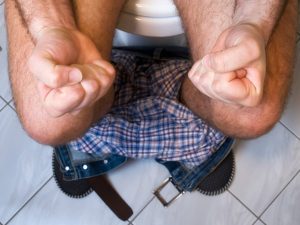 As colorectal surgeons, we tend to deal with a lot of ailments that many people would deem embarrassing. Problems that affect the anus or rectum are neither embarrassing nor something that you should hide from your doctor. Many of these conditions are imminently treatable, including anal fistulas.
As colorectal surgeons, we tend to deal with a lot of ailments that many people would deem embarrassing. Problems that affect the anus or rectum are neither embarrassing nor something that you should hide from your doctor. Many of these conditions are imminently treatable, including anal fistulas.
Anal fistulas are openings between the skin near the anus and the rectum that are usually caused by infection or a collection of pus in the anus. An anal fistula can also be the result of bowel conditions like inflammatory bowel disease (IBD) such as Crohn’s disease.
At La Peer Health Systems, our Los Angeles colorectal surgeons regularly perform anal fistula repair surgery, but we carefully adapt our treatments to meet the individual needs of our patients. To find out how we can help treat your anal fistula, contact us today at 855.360.9119 and ask to speak with our Department of Colorectal & General Surgery.
ANAL FISTULA SIGNS AND DIAGNOSIS
Different types of anal fistula exist. Some types of fistulas branch into more than one opening or cross the sphincter muscles that control the sphincter muscles, which control the opening and closing of the anus. Still others have merely a single connection running from the rectum to the skin.
If you experience any of the following signs and symptoms of anal fistulas, you should speak with your doctor or a colorectal surgeon:
- Pain in and around the anus
- Swelling in and around the anus
- Irritated skin around the anus
- Leakage of pus or blood from the anus
- Problems with bowel control
After you meet with a doctor and discuss your symptoms, a physical examination of the anus and rectum is next. Our colorectal surgeons can perform the examination by using a special telescope with a light on the end to allow us to see inside the rectum. A fistula probe, a tiny instrument that can be inserted through the fistula, can also be used. An MRI can be performed as well to find out if the anal fistula is linked to any of the sphincter muscles.
Once a diagnosis has been made, surgery is usually the way to treat anal fistulas. The procedure is known as an anal fistulotomy. Since this treatment is very complex, general practitioners will usually refer patients to a specialist colorectal surgeon.
ANAL FISTULA REPAIR SURGERY
Some surgical treatment options for anal fistulas include:
A procedure performed often at La Peer, anal fistulotmy is an outpatient procedure in which anal fistulas are opened up and forced to heal from the inside out. The procedure takes place under sedation with local anesthesia, which means that patients are pain-free and not aware during surgery. As a result, your colorectal surgeon might ask you to help prepare yourself for the best possible outcome. Your duties might include:
- Not smoking beforehand
- Administering an enema to clean out the rectum
- Fasting for at least six hours before surgery
There are a couple of ways to treat an anal fistula depending on its type. If, for example, the fistula is on top of the skin, it can be “laid open” so that it heals from inside out. Sometimes a thread of suture material is left in the fistula tract. This is referred to as a seton. The seton might need to stay in place for a period of time to aid in the healing process.
At the close of the procedure, a dressing is placed between the buttocks and instructions are given regarding wound care. The procedure may take less than hour.
After the procedure, patients recover in the post-anesthesia area until the effects of anesthesia wear off. Pain relievers may be needed to help with any discomfort once the anesthesia does wear off. Narcotics and anti-inflammatories are usually needed.
RECOVERING FROM ANAL FISTULAS
The time it takes for the wound to heal post surgery varies from a few weeks to a few months. It all depends on your individual circumstances as well as your adherence to the recovery plan.
On the morning after your operation, it’s normal to have some bleeding. Patients will need their wound monitored by their surgeon until they are completely healed. Sometimes stool softeners or antibiotics are prescribed, and it is important to take the antibiotics until they are finished.
Patients should be able to use the toilet while making sure to carefully wash and dry the anal area when finished. It is also important to avoid sitting still for long periods of time or doing heavy exercise. Patients should also avoid driving if they are still taking narcotics for pain control.
CONTACT OUR LOS ANGELES COLORECTAL SURGEONS
The surgeons at La Peer Health Systems are some of the country’s best at what they do. Many of them are Department Heads at major hospitals in Los Angeles, while others educate top young minds in medical schools. However, all are highly skilled and experienced in their field of medicine.
Don’t be afraid to talk to your doctor about anal fistulas. Contact our Beverly Hills surgeons today by filling out our website contact form or calling 855.360.9119 to schedule an appointment.
For more extensive information about anal fistula procedures at La Peer, please visit FissureSurgeryMD.com, our site dedicated solely to anal fissure and fistula treatment.
Next, read about Anal Fissures.
